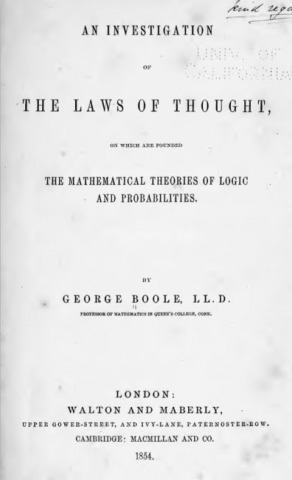
Today’s post concerns the nature of logic. It will bore some readers, interest others, and fascinate a few. Read on to find out which kind you are.
Aristotle famously distinguished between theoretical syllogisms (which describe how we consider what is the case) and practical syllogisms (which describe how we decide what to do).
Here is an example of a theoretical syllogism. The crucial thing is that the premises and the conclusion are all propositions:
SYLLOGISM #1:
All men are mortal.
I am a man.
Therefore, I am mortal.
Here is an example of a practical syllogism. This time the crucial thing is that although the premises are propositions, the conclusion is not a proposition. It is an act, a decision:
SYLLOGISM #2:
Theft is wrong.
Taking Steve’s wallet is theft.
So I don’t take it.
The reason the first syllogism ends in a proposition, but the second one ends in a decision, is that Aristotle viewed logic as the laws of rightly ordered thought. For much of its history, logic was always presented that way! Today, however, the topic is usually presented differently. Students today are taught to view it, not as the theory of rightly ordered thought, but as the theory of the consequence relation – something purely formal. Another way to put this is that Aristotle viewed logic almost as a branch of ethics, but today’s logicians view it almost as a branch of metaphysics. (The two, of course, are connected – at least from the classical point of view.)
Reading Aristotle’s logic with contemporary assumptions easily leads to misunderstanding, because when today’s students are taught about Aristotle’s practical syllogisms, they usually think that their conclusions must be propositions – like this:
SYLLOGISM #3:
Theft is wrong.
Taking Steve’s wallet is theft.
Therefore, taking Steve’s wallet is wrong.
Now “Taking Steve’s wallet is wrong” isn’t a decision that I make, but a conclusion about what is the case. I might ignore it – that is, I might acknowledge that taking his wallet is wrong, but take it anyway. Just for this reason, Aristotle himself would regard Syllogism #3 not as a practical syllogism, but as a theoretical syllogism.
Well, that’s fine. But even so, Syllogism #3 has something to do with practice, doesn’t it? For a rightly ordered mind reasons, “If taking Steve’s wallet is wrong, I won’t take it.” Calling Syllogism #3 a theoretical syllogism and letting it go at that misses that important point. For this reason, I think modern Aristotelians need a name for mental processes like Syllogism #3. We might call them not just theoretical, but practitheoretical syllogisms -- theoretical syllogisms, but with a twist.
But just as there are syllogisms which Aristotle would call theoretical yet have something to do with practice, aren’t there also syllogisms which Aristotle would call practical yet have something to do with what is the case? Like this one:
SYLLOGISM #4
All men are mortal.
I am a man.
So I concede my mortality.
The reason Aristotle would call this a practical syllogism is that “I concede the fact of my mortality” isn’t a conclusion about what is the case (what is the case is up there in the premises), but a decision that I make. I might have refused assent to the fact of my mortality, but, having a rightly ordered mind, I assent to it.
And again, that’s fine. But just as Syllogism #3, even though it is a theoretical syllogism, has something to do with practice, so Syllogism #4, even though it is a practical syllogism, has something to do with what is the case. It is all about whether I give in to what is the case.
So, just as I think modern Aristotelians need a name for mental processes like Syllogism #3, so think that they need a name for mental processes like Syllogism #4. We might call them not just practical, but theoripractical syllogisms – practical syllogisms, but with a twist.
Now if you take the contemporary view, thinking of logic as merely the theory of the consequence relation, then none of this will make a bit of difference to you. To you, Aristotle’s practical syllogisms aren’t syllogisms at all. Theoretical syllogisms are the only kind there are.
But if you take the classical view, thinking of logic as the laws of rightly ordered thought, then these distinctions are important. They reflect four different ways in which a rightly ordered mind may approach matters, whether theoretical or practical.
School over.